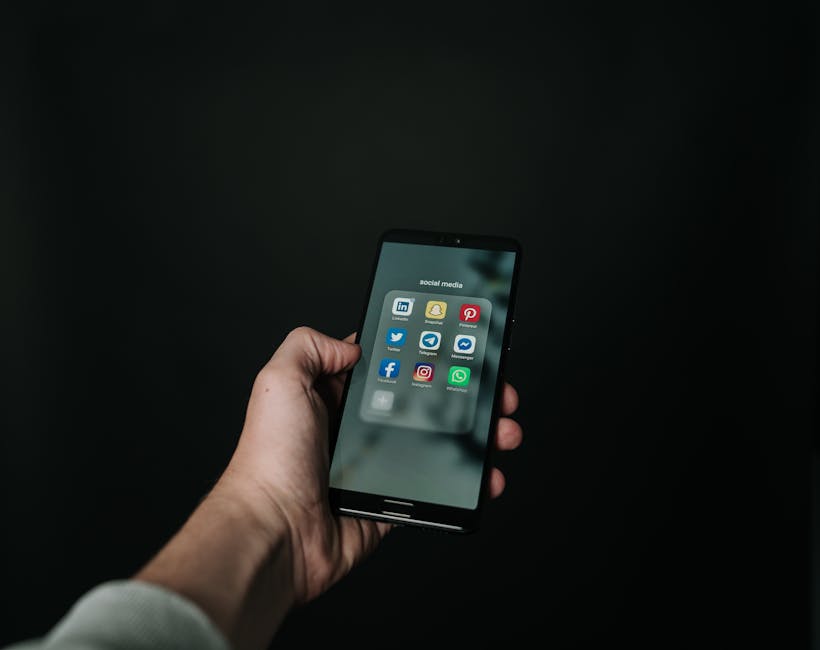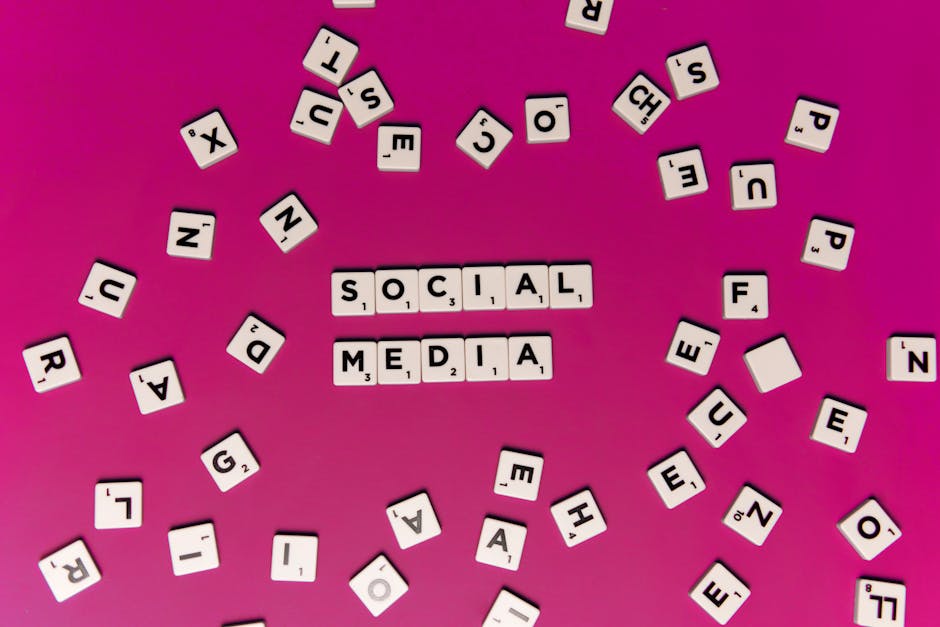Did you know that studies suggest people who spend more than two hours a day on social media are more likely to report feelings of social isolation? That’s a stark reminder of the complex relationship we have with these platforms. Are we truly connecting, or are we viewing a carefully curated version of reality that leaves us feeling inadequate? This article digs deep into the world of social media vs reality in 2025, helping you navigate the digital landscape with a critical eye. We’ll show you how to spot the differences and build a healthier relationship with your online world.
## Understanding the Illusion: Social Media’s Filtered Lens
Social media is designed to be engaging, but it often presents an idealized version of life. People tend to share their highlight reels: vacations, promotions, and picture-perfect moments. This creates a distorted perception of what’s normal and achievable, potentially leading to feelings of envy, anxiety, and low self-esteem.
Imagine scrolling through your feed and seeing countless images of seemingly flawless skin, exotic travels, and perfectly decorated homes. It’s easy to forget that these images are often heavily filtered, staged, and only represent a fraction of a person’s life. The challenges, struggles, and everyday moments are usually hidden from view. This constant exposure to unrealistic portrayals can significantly impact your mental well-being.
I remember when I first started using social media. I was immediately caught up in comparing myself to others. I would see people my age achieving incredible things, traveling the world, and living these seemingly perfect lives. It wasn’t until I took a step back and realized that I was only seeing the highlights that I started to feel better about my own journey.
## Key Strategies for Navigating Social Media Wisely
Here’s how to stay grounded and maintain a healthy perspective while using social media:
Be Mindful of Your Consumption: Pay attention to how social media makes you feel. If you consistently feel negative emotions after scrolling, consider reducing your usage or unfollowing accounts that trigger those feelings.
Curate Your Feed: Choose to follow accounts that inspire you, promote positivity, and represent diverse perspectives. Unfollow or mute accounts that make you feel bad about yourself or promote unrealistic expectations.
Remember the Editing Process: Understand that most content on social media is carefully crafted and edited. Recognize that filters, lighting, and posing can significantly alter appearances and situations.
Focus on Real-Life Connections: Prioritize building and maintaining relationships in the real world. Spend time with loved ones, pursue hobbies, and engage in activities that bring you joy outside of the digital realm.
Practice Gratitude: Focus on the positive aspects of your own life. Keep a gratitude journal or simply take a few moments each day to appreciate what you have.
## Common Mistakes to Avoid
Falling into the trap of comparison is one of the biggest pitfalls of social media. Here are some other common mistakes to watch out for:
Believing Everything You See: Don’t automatically assume that everything on social media is accurate or authentic. Be skeptical and question the information you consume.
Seeking Validation Online: Avoid relying on likes and comments for self-worth. True validation comes from within and from meaningful relationships in the real world.
Ignoring Your Mental Health: If social media is negatively impacting your mental health, don’t hesitate to seek professional help. A therapist or counselor can provide support and guidance.
Endless Scrolling: Set time limits for your social media usage and stick to them. Avoid mindlessly scrolling for hours on end.
Neglecting Real-Life Responsibilities: Don’t let social media interfere with your work, studies, or personal relationships.
## Tools and Techniques for a Healthier Digital Life
Several tools and techniques can help you manage your social media usage and protect your mental health:
App Timers: Use built-in app timers or third-party apps to limit the amount of time you spend on social media each day.
Website Blockers: Block access to certain websites during specific times of the day to reduce distractions and promote productivity.
Mindfulness Apps: Use mindfulness apps to practice meditation and cultivate self-awareness.
Digital Detox: Take regular breaks from social media to disconnect and recharge. Consider a weekend or even a week-long digital detox to reset your relationship with technology.
## Expert Insights: The Future of Social Media and Reality
Experts predict that the line between social media and reality will continue to blur in the future. The rise of augmented reality (AR) and virtual reality (VR) will create even more immersive and potentially distorting experiences. It will be increasingly important to develop critical thinking skills and media literacy to navigate these new technologies responsibly.
According to recent article on The Verge, The metaverse is changing the way we interact with each other online, requiring new strategies for discerning social media from reality.
Furthermore, according to the Pew Research Center, younger generations are using social media for news, which emphasizes the need to teach critical thinking skills to avoid misinformation.
## Social Media vs Reality: A Table Comparison
| Feature | Social Media | Reality | |
|---|---|---|---|
| —————- | —————————————— | —————————————– | |
| Portrayal | Idealized, curated | Complex, unfiltered | |
| Authenticity | Often staged, with filters | Genuine, spontaneous | |
| Focus | Highlights, achievements | Everyday moments, challenges | |
| Connection | Superficial, online | Meaningful, in-person | |
| Impact on Self-Esteem | Potential for negative comparison | Opportunity for authentic self-expression |
>“The problem is that social media is a reflection of our insecurities, and that is not helpful. “ – Arianna Huffington
## Key Takeaways
Social media often presents an unrealistic and idealized version of life.
It’s important to be mindful of your consumption and curate your feed.
Avoid comparing yourself to others and seeking validation online.
Prioritize real-life connections and practice gratitude.
Use tools and techniques to manage your social media usage and protect your mental health.
## Social Media vs Reality FAQs
Q: How can I tell if something I see on social media is fake?
A: Look for signs of editing or manipulation, such as excessive filters or unnatural lighting. Be wary of accounts that promote unrealistic lifestyles or make outlandish claims. Cross-reference information with reliable sources.
Q: What are the negative effects of comparing myself to others on social media?
A: Comparing yourself to others can lead to feelings of envy, anxiety, low self-esteem, and depression. It can also distort your perception of what’s normal and achievable.
Q: How can I improve my mental health while using social media?
A: Be mindful of your consumption, curate your feed, limit your usage, and prioritize real-life connections. Practice gratitude and focus on the positive aspects of your own life.
Q: Is it possible to have a healthy relationship with social media?
A: Yes, it is possible to have a healthy relationship with social media as long as you are aware of its potential pitfalls and take steps to protect your mental health.
Q: How does social media affect our perception of reality?
A: Social media can create a distorted perception of reality by presenting an idealized and curated version of life. This can lead to feelings of inadequacy and dissatisfaction.
## Recommendations and Next Steps
Navigating the digital world in 2025 requires a conscious effort to distinguish between the curated realities of social media and the complexities of real life. Stay informed, stay critical, and stay connected to the world around you. As we have discussed the pitfalls of constant comparison and the importance of authenticity, I want to leave you with a question. What small change can you make today to improve your relationship with social media?
Now, I encourage you to take action. Re-evaluate who you follow on social media and eliminate accounts that trigger negative emotions. Share this article with your friends and family to start a conversation about the impact of social media on our lives.



